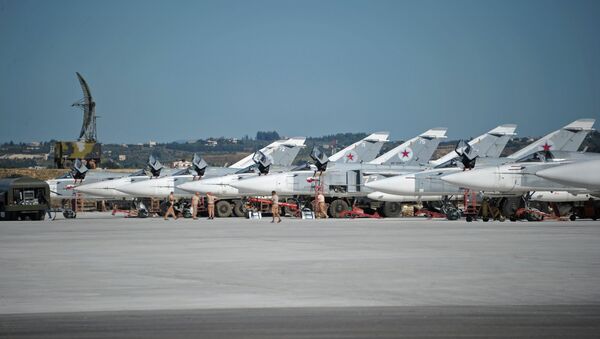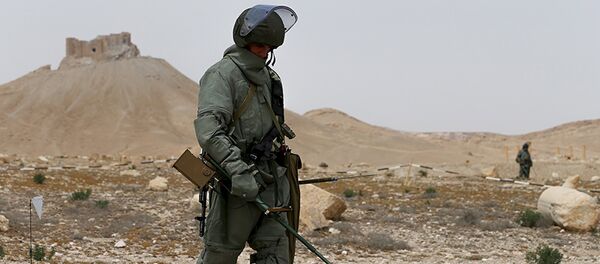"In Syria, the handling of troops was organized at a high level. Such troops command we had neither in Afghanistan, nor in other armed conflicts," Deinekin told RIA Novosti in an interview, dedicated to the Russian Air Force Day celebrated on August 12.
He stressed that operation in Syria had once again proved that the combined arms commander, who gives orders simultaneously to the Air Force, the Ground Forces and the Navy, should be in charge of the troops.
The Russian Aerospace Force presently lacks personnel to effectively carry out larger operations than that in Syria, Deinekin noted.
The former Air Force commander added that the ultimate factor, defining the military capability of any country, would always be the air supremacy, hence, the priority in the development of the Russian military should be given to the Air Force. He also pointed out that the government should take urgent measures for the preparation of flight personnel at the state level.
On September 30, 2015, Moscow began its anti-terror campaign in Syria on Damascus' request, during which the Russian Aerospace Forces used fighter jets Su-30SM, Su-35S, Su-24, Su-25 and heavy bombers Tu-22M3, Tu-95MC, Tu-160, covered by the Navy forces, to conduct precision airstrikes against the targets of the Daesh militant group, outlawed in many countries, including Russia.



